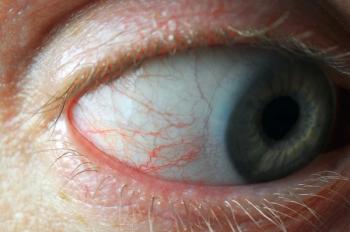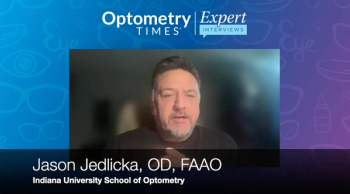
Are you ready for online refraction?
Patients will soon be able to undergo a refraction online through Opternative.com in a matter of minutes and for a fraction of the cost of a traditional exam, but the company doesn’t intend for its test to replace a complete eye exam.
Chicago-Patients may soon be able to undergo a refraction online through
“We hope (doctors) realize we are not looking to replace them and understand that we are looking to innovate this space,” says Aaron Dallek, Opternative CEO, speaking exclusively to Optometry Times. “We hope that this is something that forward-thinking optometrists and ophthalmologists start using.”
Dallek says he and co-founder Chicago OD Steven Lee strongly believe regular in-office exams are important. But, he says, the site offers a solution for otherwise healthy patients who may not require a yearly exam but may still need a new prescription. He cites the
Opternative’s online test costs about $35, significantly less than an in-office exam. The company’s Web site claims the online refraction will take just 10 minutes and is as accurate as an in-person exam. The prescription will be reviewed and signed by the company’s ophthalmologist. Contact lens prescriptions will be only released to patients who have been fit previously and are comfortable with their current lenses.
Looking at ocular health
The company and its technology have received criticism from eyecare professionals (ECPs), who have questioned the concept.
“While we all marvel at the promise of new technology, I think this one’s got a lot of questions to answer," says Ernie Bowling OD, FAAO, chief optometric editor of Optometry Times. “Prescribing lens correction is as much an art as it is a science. There are other considerations besides just raw refractive data. An autorefractor can give you numbers. It’s up to the clinician to take all the refractive data and filter it through discussions with the patient about his visual needs to arrive at a prescription that best serves the patient. Any set of numbers generated from a machine is only a starting point.”
ECPs have expressed concern for the ocular health portion of an eye exam, but Dallek says that the company is exploring additional ocular health screenings. “We’re working on technology that includes tests for macular degeneration and tests for glaucoma using visual fields, which can be used to test for other conditions, as well, such as brain tumors,” he says.
The company is also developing a program to map the topography of the ocular surface using a mobile phone or Web site.
Online to in-office?
Dallek says he envisions Opternative’s technology, like the tests in development, being used to monitor patients in-between visits, or for patients with conditions that require regular checks who can’t make it in to an office on a frequent basis. While the technology will launch online, he says he hopes to see it move into the office.
The company plans for an independent, double-masked study this spring. “We want people to see that the data is comparable or produces more accurate results (than the traditional in-office test). Whatever the results show, we’re going to make that publicly available,” says Dallek.
Opternative is seeking U.S. Food and Drug Administration (FDA) approval. The test will not be available until it receives FDA approval, which Dallek expects Q3 2014.
The company has not explored accepting vision insurance, but may do so in the future.
Says Dallek: “Dr. Lee felt there had to be a better way (to conduct a refraction); it wasn’t so much that the current way is bad, but there’s just so much new technology available for smartphones and computers.” While there have been great strides in eyecare technology, the pair felt innovation had not yet come to refraction.
The company has worked with both optometrists and ophthalmologists, with both professions represented on its advisory board. “We’ve put this in front of top-level neuro-ophthalmologists. They asked us some really tough questions, but they all agreed that this was very innovative, the technology could be very accurate, and it’s based on sound optics,” says Dallek.ODT
Newsletter
Want more insights like this? Subscribe to Optometry Times and get clinical pearls and practice tips delivered straight to your inbox.















































